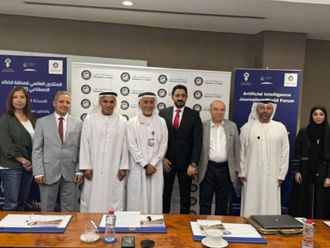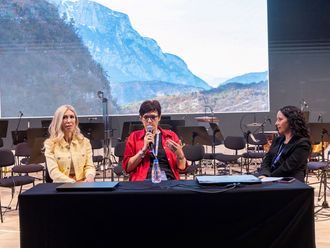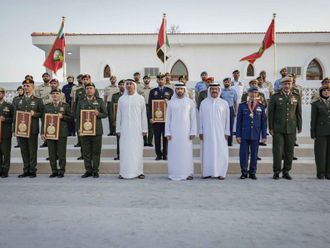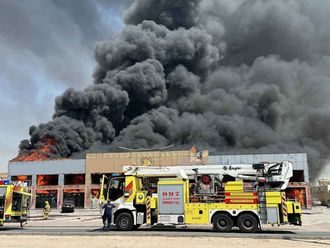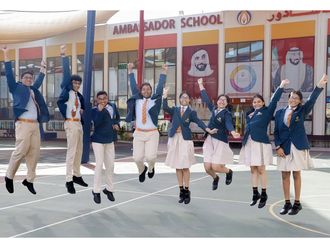Dr Shaker |
At a party in Moscow shortly after the fall of the Soviet Union, a high-ranking Russian official stood up to make a toast. Addressing a mild-mannered gentleman in the crowd, he jibed: "Are you planning to take our greatest mistake to Iraq?"
Dr. Kamal Shaker, representative of the Iraqi Communist Party in Moscow from 1984-1991, welcomed the opportunity to defend his ideology.
"If you and your wife file for divorce tomorrow, does that invalidate the institution of marriage, or does it mean you, as individuals, made mistakes?" he asked.
The failure of the Soviet experiment was a blow to communist parties worldwide, conceded Dr. Shaker, but the Iraqi Communist Party never lost its grassroots support.
"Because of the history of our party, the Iraqi people respect our work," he said. "And we learned from the mistakes of our comrades in Russia. Communism is not about curtailing freedoms…".
Dr. Shaker, now based in Arbil, is dressed in a finely tailored suit. He has stark white hair, a closely trimmed mustache, and a glowing complexion. He is fluent in Arabic, Kurdish, Farsi, Romanian and Russian - but he is ever-modest about his English proficiency.
He easily shifts from a sober discussion on politics to knee-slapping Kurdish jokes. One marvels at his good humour, let alone his sanity, in view of the tumultuous life he has led.
Dr. Shaker spent 14 years in a Baghdad prison. The order for his execution was given 15 times, but on each occasion, as the noose was tightened around his neck, it was called off. He was finally freed in 1979, but his neck still bears the stretch marks.
"There was an international appeal for my life," he said. As a leader of the student unions, he was a recognised figure in communist circles around the world. To this day, he receives "fan mail" from young people who admire his courage and his diehard commitment to his cause.
Dr. Shaker is currently a member of the politburo of the Iraqi Communist Party, as well as the Kurdistan Communist Party. During the infighting between the two main Kurdish factions in northern Iraq - led by Masoud Barzani of the Kurdistan Democratic Party (KDP) and Jalal Talabani of the Patriotic Union of Kurdistan (PUK) - he served as a "sounding board" for international bodies, which came to mediate the conflict.
"After listening to both sides, they would come to see me for a sober assessment of the situation," he said.
For the past 10 years, peacemaking has been the party's primary function in the region - a far cry from its heyday in the mid-20th century when it enjoyed the support of leftist governments around the world, and actively pursued its unique brand of communism, which merged nationalism with social reform.
The Iraqi Communist Party was founded in 1932. Fifty years later, after the Kurdish uprising, party leaders decided to convert their branch in northern Iraq into the Kurdistan Communist Party. While the two parties remain firmly linked, the Kurdish party focuses mainly on issues related to the Kurdish populace, as well as diffusing rivalries between the KDP and PUK.
Both parties are steadfastly against a U.S.-led war on Iraq, and foreign interference in the domestic affairs of the country. They believe change must come through democracy rather than foreign intervention. Communists calling for democracy in Iraq?
"What is democracy? A Spanish communist once told me that if Picasso were asked to paint a picture of democracy, he would laugh. There is no single form," he said. "Even in America, they don't have real democracy. The last elections were clearly rigged. In the West, they think democracy means holding elections, and voting for politicians who make promises they don't keep."
The Iraqi Communist Party did not take part in the Iraqi opposition conference in London last December. According to Dr. Shaker, U.S. envoys visited the party's office in Damascus to ascertain the reasons for their absence.
"They wanted to know our position, our political stance, and why we did not take part in the conference," he said.
"We told them that we felt this conference was nothing but a show orchestrated by the Americans. It was not constructive for the opposition. It did not decide on how the opposition would bring about change in Baghdad, but how the Americans would bring about this change."
Dr. Shaker added: "We cannot stand against the United States. They are a superpower. But do we want to be used by them?"
While the Iraqi Communist Party did not attend the London conference, the Kurdistan Communist Party made a cameo, as a show of solidarity with their Kurdish brothers and at the same time, "to ensure that the end product is a federal government", he said.
"We don't want to trade Saddam Hussain for an American regime. Our strategy is simple. We want an elected government, and we reject occupation," he explained.
Ghassan Al Rifaee, member of the politburo of the Lebanese Communist Party, said his comrades in Iraq were stuck between a rock and a hard place.
"They could not take part in the London conference because they do not support the U.S. agenda. But they cannot side with Saddam Hussain either," he said.
Dr. Shaker also ridiculed the presence of monarchists in the Iraqi opposition. "It's actually very funny," he said. "Every year, Iraqis celebrate the 1958 revolution, which overthrew the monarchy. And now they want to bring it back?"
As for the future of the communist party: "We will be out of government, but we will be with the people."
Their efforts at a grassroots level will continue through the party's newspaper, Tariq Al Shaab (The Path of the People), and radio programme, Sawt Al Shaab Al Iraq (The Voice of Iraqi People), to "enlighten the public" about social ills and economic realities, which must be rectified, he said.
"Since the fall of the Soviet Union, there is an imbalance in the world order," said Al Rifaee, who travelled to northern Iraq to meet with Kurdish leaders. "The failure of the Soviet experiment does not negate communism, and justify capitalism. In fact, the absence of a balance between these two conflicting ideologies may eventually lead to the downfall of the American system."
In the absence of an effective socialist rival, the American administration is taking away many of the social services it once offered to the public, he said. This will gradually alienate a large segment of the American population, he said.
Al Rifaee also pointed out that the United States, as a capitalist country, is trying to control smaller capitalist countries.
"This was not the case in the past because the Soviet bloc was there to keep the U.S. in check," he said. "The communist party must face these new realities and devise new strategies. Our agenda is not parochial. The sub


